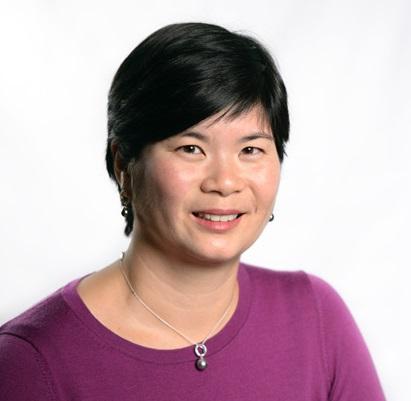
Dr Alison Yeung is a clinical geneticist involved in Melbourne Genomics’ Complex Care project, which is providing genomic sequencing to selected patients and evaluating its usefulness for medical practice. The project is being led by Associate Professor Sue White from Murdoch Children's Research Institute.
We asked Alison a few questions about the project.
What are ‘complex conditions’?
Complex medical conditions affect multiple body systems, are lifelong and incurable. Many of these conditions have an underlying genetic basis, often caused by one affected gene (monogenic). Children with complex conditions are typically acutely unwell, their everyday functioning and daily life is limited, and they require support from many different medical services.
What is important about this project?
This is the first time in Australia that genomic sequencing is being offered to infant, child and adolescent patients with complex medical needs as a first diagnostic test (rather than as a last test after other options have been exhausted).
Complex conditions are usually very difficult to diagnose accurately, and patients can often go through years of invasive testing without result. We anticipate that 30% to 60% of patients will receive a diagnosis from genomic sequencing, which is a substantial improvement on standard testing.
Although complex conditions are largely incurable, clear diagnosis improves understanding of a child’s likely development path, assists parents to make informed family planning decisions, and enables clinicians to offer optimal and individualised care. Our experience with complex conditions shows that medical care changes for at least one-third of those diagnosed.
What is your role?
I am a member of the team involved in recruiting patients from across Victoria into the project, through The Royal Children’s Hospital, Monash Medical Centre and Austin Health. This multidisciplinary team – of geneticists, genetic counsellors and laboratory scientists – comes together regularly to discuss patients suitable for recruitment and to review sequencing results. I provide advice about the genes likely to be involved in each patient’s condition on the basis of their clinical features, and I also help with the interpretation and feedback of results to patients and their treating clinicians.
What do you hope to achieve?
I hope this project will demonstrate that integrating genomic testing into the care of this complex group of patients has potential to guide important management decisions and relieve the burden of uncertainty for parents. We are also hoping to answer specific questions about the best way to perform genomic testing by a trial of different approaches, including 'rapid sequencing' (generating results in less than two weeks) and 'trio sequencing' (sequencing parents at the same time as their child).
What excites you about the project?
I am excited by the possibility that genomic testing can provide a timely diagnosis for some of the sickest children in our hospitals, reducing the need for extensive investigations and providing important information to parents and treating clinicians.
Another exciting aspect of this project is the way it has generated close collaboration among a wide range of specialty clinicians within the recruiting hospitals, who are recognising the potential benefits that genomic testing can offer their patients.
Can you tell us about you?
I am a clinical geneticist at Victorian Clinical Genetics Services and the Murdoch Childrens Research Institute, as well as Monash Health. My clinical work focuses on the diagnosis of childhood dysmorphic syndromes, genetic eye diseases and genetic conditions in pregnancy, and my current research interests extend to the translation of genomic sequencing into the clinical setting.
